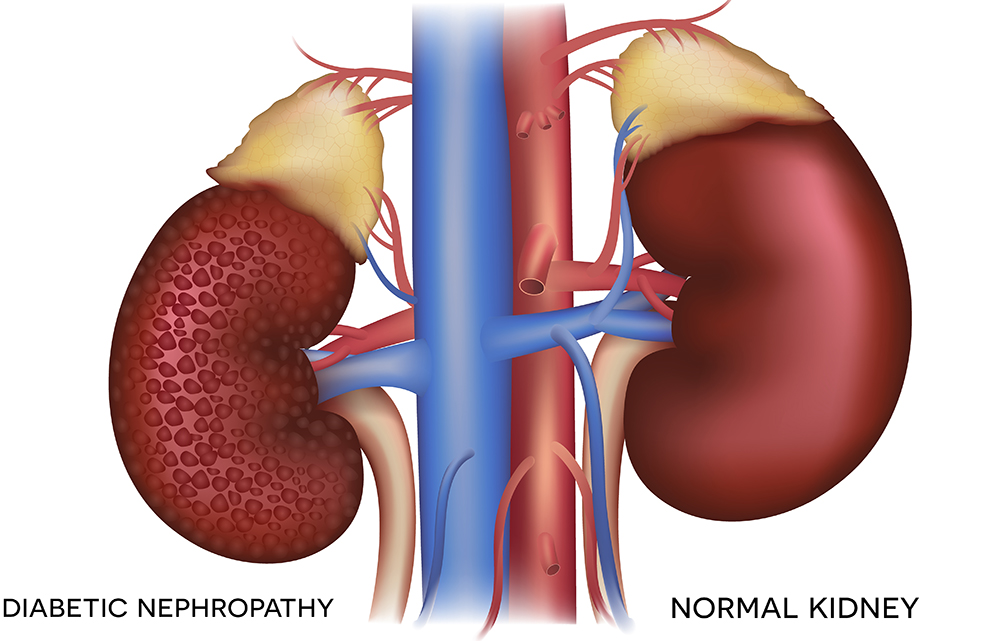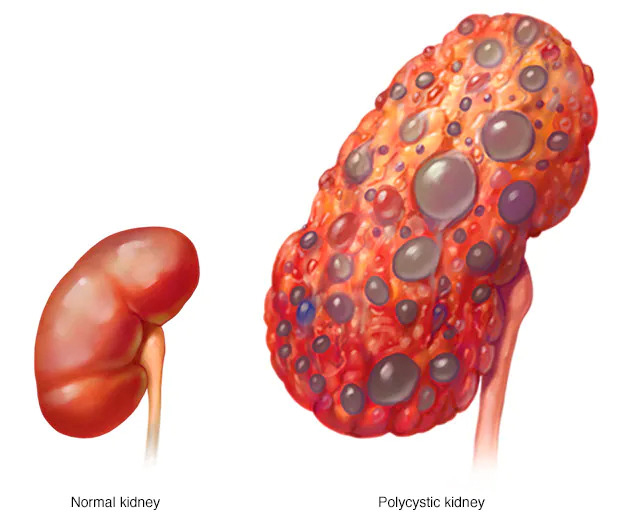In 1968, the French nephrologist Dr. Jean Berger provided the first description of immunoglobulin A (IgA) nephropathy, sometimes referred to as Berger’s disease. This kidney ailment triggers inflammation in the kidneys. Initially, it was considered to pose little threat. However, further research revealed that up to 50 percent of cases progressed to end-stage renal disease (ESRD) or kidney failure, according to the IgA Nephropathy Support Network. Following diabetes and high blood pressure, IgA nephropathy stands as the third leading cause of chronic kidney disease (CKD) in the United States.
Immunoglobulin A is an antibody produced when the body faces threats like viruses, bacteria, or toxins. Typically, these antibodies help combat invading substances. For reasons still unknown, IgA can infiltrate the kidneys, leading to inflammation. This, in turn, can result in the presence of blood and protein in the urine, elevated blood pressure, swollen extremities, and other CKD symptoms.
Symptoms of IgA nephropathy do not manifest in its initial stages; instead, it’s a progressive condition that may take decades to produce noticeable signs. Occasionally, during routine screenings, doctors may detect IgA nephropathy signs, which include:
If you notice blood in your urine, consult your doctor immediately, as this could be a symptom of IgA nephropathy.
IgA nephropathy can affect anyone regardless of age, but it is more common in men. Caucasians and Asians have a higher incidence of IgA nephropathy than other ethnic groups.
The exact causes of IgA nephropathy and why IgA becomes trapped in the kidneys remain unknown. In some cases, it may develop after a child or young adult contracts a viral infection of the upper respiratory or gastrointestinal tracts. For certain individuals, a genetic defect may be associated with the development of IgA nephropathy.
IgA nephropathy can lead to acute kidney failure or CKD. In some instances, a person’s kidneys may suddenly cease functioning and then recover after some time. However, for those with IgA nephropathy that progresses to CKD, over the years or even decades, their kidneys will gradually lose function, necessitating treatments such as dialysis or a kidney transplant.
Blood in the urine is the most common symptom of IgA nephropathy. If your urine contains blood or protein, your doctor may order a series of tests to assess kidney function and injury. In severe cases, a kidney biopsy may be necessary.
IgA nephropathy cannot be prevented and currently has no cure. While some people can live with the disease without significant complications, up to half of those with IgA nephropathy may progress to ESRD. Your doctor will work with you to manage this condition, and treatment options may include:
Discuss IgA nephropathy testing with your doctor and seek guidance on what to do if you receive a diagnosis.
North Las Vegas
4107 w. Cheyenne Ave.
No. Las Vegas, NV 89032
| Phone: | (702) 383-9741 |
| Fax: | (702) 387-1145 |
| Mon | 8:00 AM – 4:00 PM |
| Tue | 8:00 AM – 4:00 PM |
| Wed | 8:00 AM – 4:00 PM |
| Thu | 8:00 AM – 4:00 PM |
| Fri | 8:00 AM – 4:00 PM |
| Sat | 8:00 AM – 2:00 PM |
| Sunday | Closed |
Dr. Cyril Ovuworie also known as “Dr. Over-worry”, graduated from the University of Lagos School of Medicine, Nigeria in 1991. He further completed his Internal Medicine Residency at Columbia University College of Physicians and Surgeons in New York, 1997. In 1999, he completed his Renal Fellowship at Johns Hopkins University School of Medicine in Baltimore, Maryland. And then he moved on to do a Transplant Nephrology Fellowship at Harvard Medical School in Boston, Massachusetts which he completed in 2000. He subsequently served as Clinical Instructor at University of California Los Angeles School of Medicine. Also Dr. Ovuworie participated in various research projects especially in the area of Endothelial Function, Homocysteine and Heart Disease. He and his colleagues have published many of their findings. most importantly, Dr. Ovuworie is on staff at most of the Las Vegas hospitals.
Dr. Rafael Franjul Diaz graduated from Universidad Nacional Pedro Henriquez Ureña, Santo Domingo; the Dominican Republic in 2005 and worked as a primary care physician for several years. Completed his Internal Medicine residency at Nassau University Medical Center in East Meadow NY in 2015 with board certification in Internal Medicine that same year. Went on to pursue his dream of becoming a Nephrologist and was accepted in the Nephrology fellowship program at Newark NJ and will be board eligible for Nephrology Board Certification in 2017. His interest is in all areas of nephrology with special attention in glomerular disease and peritoneal dialysis with publication in this area. Above all, Dr. Franjul Diaz is a dedicated physician that works hand to hand with his patients and guide them through the course of their condition. In addition, Dr. Franjul Diaz enjoys walking and jogging and is proud to call Las Vegas his home.
Dr. Charissa Marie R. Carag obtained her medical degree from the University of the Philippines College of Medicine in 2011. In addition, Dr. Carag completed her Residency in Internal Medicine and Fellowship in Nephrology at Rush University Medical Center in Chicago, Illinois. Dr. Carag earned her board certification in Internal Medicine in 2016 and Nephrology in 2018. She is a hard working, competent, and compassionate physician focused on providing high-quality care to patients. Above all, Dr. Carag is married and in her spare time enjoys hiking and exploring the Las Vegas food scene.


